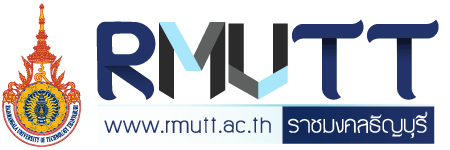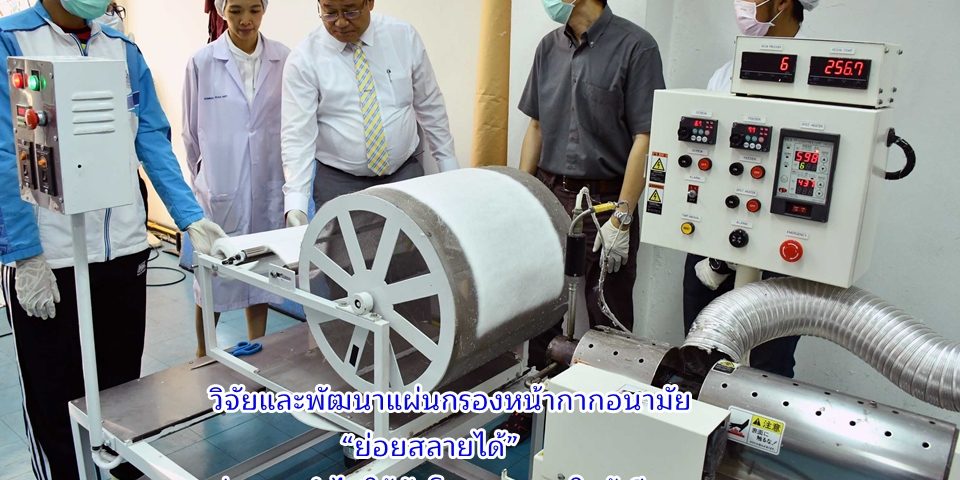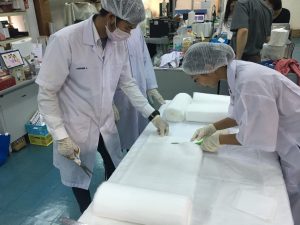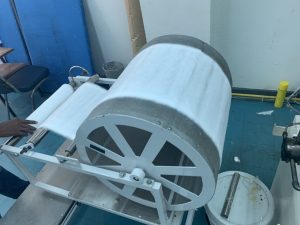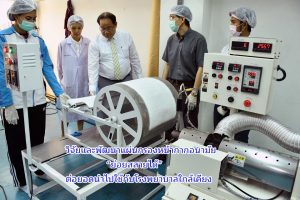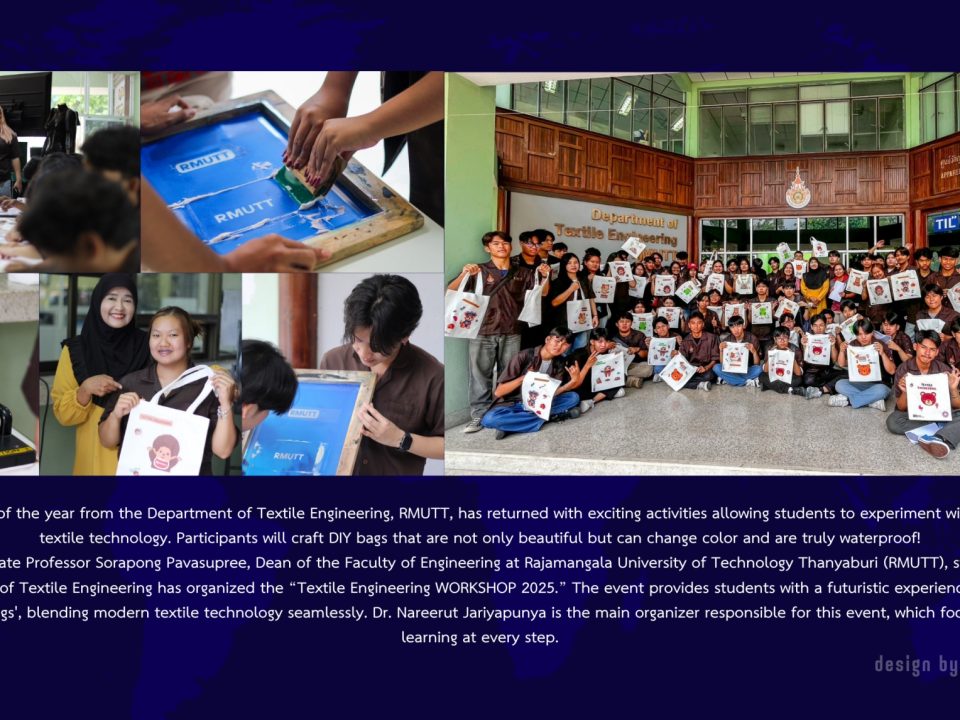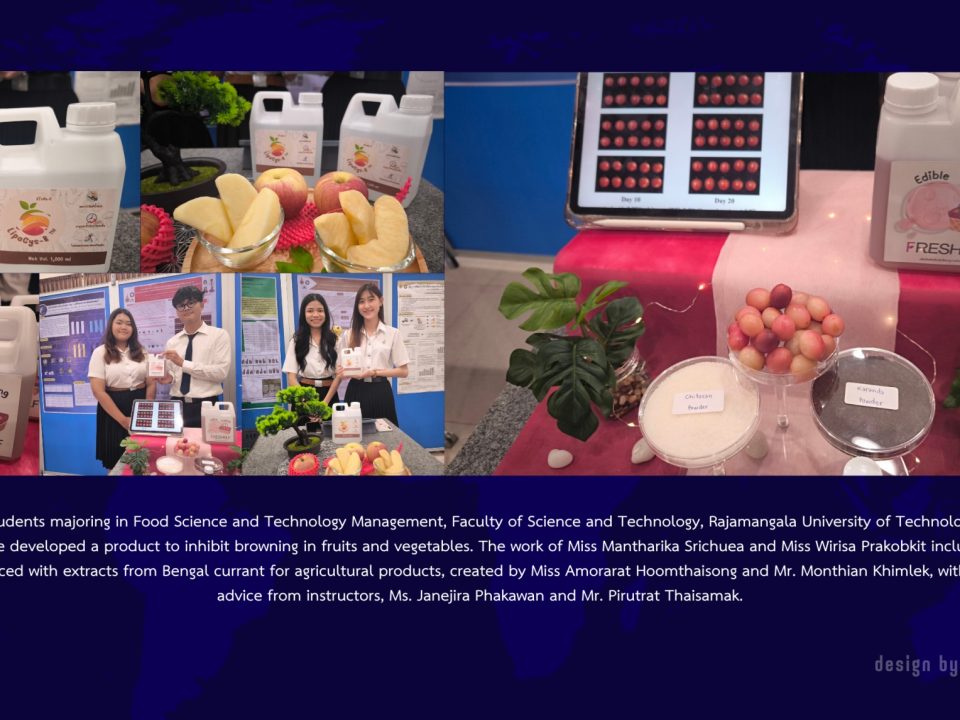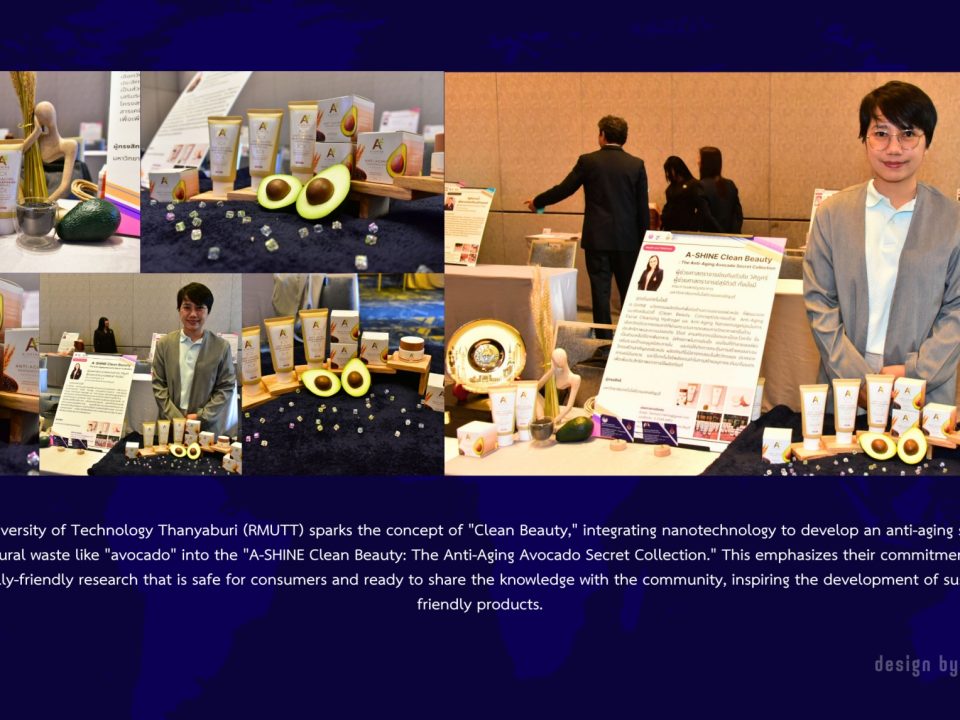
How is COVID-19 affecting education sector?
07/04/2020
“RMUTT work & learn From Home Platform”
14/04/2020RMUTT researchers design and develop its biodegradable facial mask filter” for hospitals in the area
President of Rajamangala University of Technology Thanyaburi (RMUTT), Assoc. Prof. Dr. Prasert Pinpathomrat revealed that due to the raising concerns of air pollutants with small particulate matter, or PM 2.5* (pm 2.5) and respiratory secretions from sneezing or coughing, face mask was used as a nonpharmaceutical intervention to prevent and protect users against air-pollutants that may cause various malign health effects. Having used disposal face mask in everyday life was almost inevitable not only to those in the medical field but also those who were not and thus, standardized disposal face mask at the present time was required. A pleated, disposable face mask formed of a three-ply composite non-woven structure including spun-bond, melt-blown, and spun-bond. The ply formed of a non-woven, melt blown-filter is considered the most important one particularly when its fibrous structure having equal or less than 2.5 micrometers was capable of filtering minute particles or droplets.
Regarding to the production of face mask in Thailand, most melt-blown filters were generally imported from abroad. The special polymerized micro-nano meter fibrous structure was specifically molded to fit filtration purposes. However, having made from petroleum-based as a type of thermoplastic, face masks made of Polypropylene (PP) when disposed were not easily biodegradable and could be lasting through the process of landfilling for no less than 400 years. Currently facing critical environmental issues, more and more wastes of face masks were being found and thus, finding ways to help reduce the waste was merely important. Therefore, faculties of instructors and Ph.D. scholars had been attempting to design and develop biodegradable filter and washable face mask with slot filter that was funded and supported by the Thailand Research Fund (TRF). This cooperative project was aimed to develop Polylactic acid (PLA) melt-blown filter. Concerning the Polylactic acid, the substance was being naturally synthesized from economic crops including sugar cane and tapioca. When being disposed through landfilled process, this naturally made filter would be able to disintegrate within 4 to 6 months.
For productivity of the filter, cotton candy method was applied while its attributes were similar to the one developed by melt blown spinning method. The melt blown process is a nonwoven manufacturing system involving direct conversion of a polymer into continuous filaments, integrated with the conversion of the filaments into a random laid nonwoven fabric. With a collaborative effort to achieve best filtration properties of the filter, RMUTT and Kyoto institute of technology had collaborated and conducted the research. For those interested in getting further information, please call 094-3866891.
